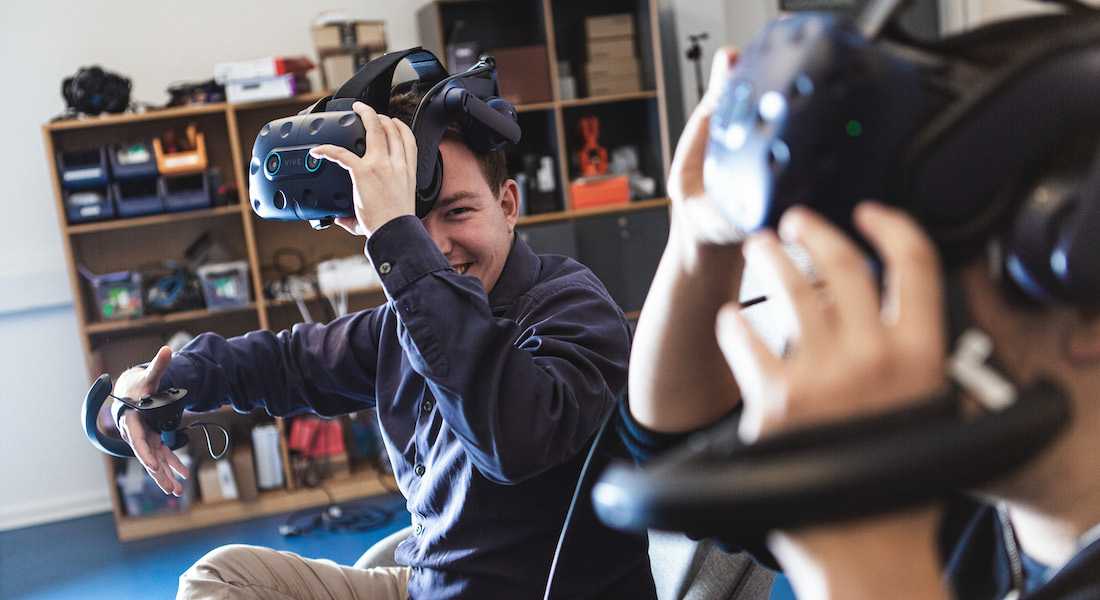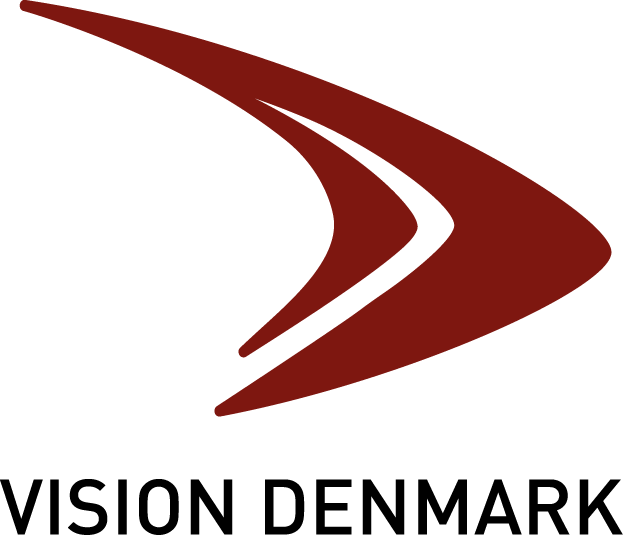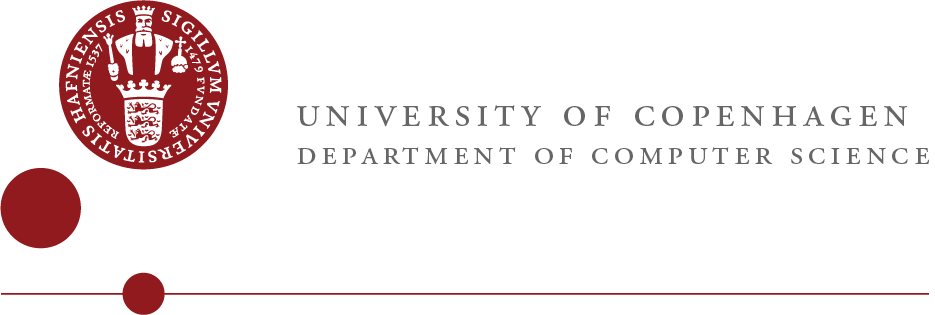Learning through XR

We will spend the day hearing cases and exchanging best practice on how we can create the best learning experiences in Virtual Reality, Augmented Reality or Mixed Reality – the world of XR.
Your will hear researchers, companies and meet students interested in this space.
The event will be moderated by Marie Høst, Techjournalist, Podcast Host, Presenter & Moderator.
Why should you attend?
The goal is to bring you closer to new technologies and findings delivered by top researchers and companies on how we create the best learning practices and experiences.
How can we collaborate in creating new products and services addressed to a variety of situations and audiences? How can we inspire the young generation to use these emerging technologies - and can we learn from them?
The XR industry is developing rapidly, and XR will chane the way we buy things, learn things and interact. The technologies are broadly and efficiently transforming societies, e.g., within life and health sciences, industry and manufacturing, education and learning by allowing innovative and extended experiences, skills development, support for collaboration at a distance, and visualization of planned operations.
Who should attend?
This event is for practitioners, researchers, students, as well as training specialists interested in learning, how VR/AR/XR can improve their training processes and learning environments. It is free to participate, but you need to sign up no later than 9 November 2022.
There is a no show fee of DKK 200.

Program
| 09:30-10:00 | Registration |
| 10:00-10:05 | Welcome by Jan Neiiendam, Director of Vision Denmark |
| 10:05-10:15 | Welcome and introduction by Professor Serge Belongie, CEO of the Pioneer Centre for AI |
| 10:15-10:45 |
Moving in Virtual Reality Joanna Bergström, Associate Professor at the Department of Computer Science, University of Copenhagen. In this talk, I present how virtual reality can change how people move. I will show techniques that allow to guide people’s hand movements in grasping virtual objects, walk in large virtual environments from small physical rooms, and experience moving multiple bodies or bodies different from their own. I will also give examples of applications for such techniques. BIO: Joanna Bergström's research is Human–Computer Interaction and Virtual Reality. She is currently focusing on virtual reality and body-based user interfaces. She is interested in experimental methods in HCI, human perception and motor skills, statistical modeling, and interaction techniques. |
| 10:45-11:15 |
Move'em: Novel Approaches to Movement in Mixed Reality Varun Perumal, CEO and founder of Unmodal Research Inc., Toronto Physical movement is an important facet of Mixed Reality. Unlike navigating digital worlds on smartphones and computers through mice, and touch screens; navigating virtual reality is closer to the way in which we navigate our own world. The ability to freely affect change in a seamless and direct fashion is crucial to enabling consistent interactions. In this talk we give an overview of two new ways of using motion in mixed reality - using physical parameters to move digital objects as well as the more uncommon ability of using digital parameters to move physical objects. We will showcase novel prototypes, explore practical use cases and ways to design with these new technologies. BIO: Varun Perumal is a cross-disciplinary researcher working at the confluence of hardware, software and design. Over the course of his research he has worked on envisioning, prototyping and validating multiple technologies and designs in the areas of Mixed Reality, Digital Fabrication and Bio-sensing. His work has received several awards, been patented and translated into commercial ventures. |
| 11:15-12:00 |
What is the future of the Metaverse? Where is the potential and what do we want to improve? |
| 12:00-13:00 |
Lunch, networking and possibility of visiting showcases |
| 13:00-13:30 |
Mechanisms of learning and behaviour change in immersive learning environments Guido Makransky, Professor in Educational Psychology at the Department of Psychology, University of Copenhagen and the founder of the Virtual Learning Lab (virtuallearninglab.net). This talk will focus on state of the art related to research in learning with immersive virtual reality (IVR). I will describe relevance of research field and how it is expected to be influenced by the predicted arrival of the metaverse. I will continue to describe the main findings related to learning with IVR, and will highlight several empirically based theoretical frameworks that help understand the central affordances of IVR for learning. I will finish by describing a number of application areas where this knowledge can be used to increase the quality of education, training and decision making. BIO: Guido Makransky's main research interests include the areas of Educational Psychology, Work and Organizational Psychology, and Human Computer Interaction. His current research focuses on understanding the mechanisms of learning and behavior change in immersive learning environments (including but not limited to virtual and augmented reality). |
| 13:30-14:00 |
XR for hearing rehabilitation and cultural heritage Stefania Serafin. Professor of Sonic interaction design, Aalborg University in Copenhagen and the leader of the multi-sensory experience lab together with Rolf Nordahl. XR technologies have been available for more than half a century but it is only now that they are ready to be taken out of laboratories. In this talk I will present different research projects we are currently involved in at the Multisensory Experience lab at Aalborg University in Copenhagen. Specifically, I will focus on the collaboration with The Center for Hearing and balance at Rigshospitalet in Denmark to use technologies to help hearing impaired individuals train their listening skills, and the collaboration with the Danish Music Museum part of the National museum to metaphorically take the musical instruments outside the glass cabinet and make them alive. BIO: Stefania Serafin is the President of the Sound and Music Computing association, Project Leader of the Nordic Sound and Music Computing network and lead of the Sound and music computing Master at Aalborg University. |
| 14:00-14:30 |
Training applications of XR: possibilities and limitations Gunver Majgaard (PhD) is Associate Professor at Game development and learning technology unit, Mærsk Mc-Kinney, University of Southern Denmark. The aim of the presentation is threefold: BIO: Gunver Majgaard is involved in the development of many VR/AR cases in the field of health and learning. Her research interests are emerging technologies such as VR, AR, Metaverse; training; design of digital educational tools; game-based learning; participatory design processes; learning processes; didactical design; program and curriculum development.
|
| 14:30-15:00 |
Break – Coffee and cake |
| 15:00-15:20 |
Certificates as a service (how digitalisation can change how we approach training) Kristian Andreasen, CEO and founder of Kanda In this talk, the CEO and founder of the Danish software company Kanda, Kristian Andreasen, will highlight some of the benefits of transforming traditional onsite training into immersive digital learning applications that enable hands-on training and teamwork across platforms and physical boundaries. BIO: Coming from a background in Engineering and Computer Science. Kristian Andreasen has always been fascinated by what happens when Humans meet new technologies. He is working to reimagine how technical training in heavy industries can be done. His focus is on the application of Virtual Reality, but are equally fascinated by the emerging fields of Artificial Intelligence, Quantum Computing and Nuclear Energy. Hailing from the dark and unexplored western part of Denmark. Kristian explores the field of Extended Reality with a healthy dose of utilitarian skepticism. |
| 15:20-15:40 |
Is there a future for virtual apprenticeships? Anders Winter, Co-founder and Chief Operating Officer, VitaSim With its starting point in academic research and the healthcare sector, VitaSim has built a platform for training and learning in VR. Some examples will include complex medical scenarios such as: BIO: Anders Winter is a Co-founder and the Chief Operating Officer at VitaSim where he supervises the creation of VR learning and training experiences including product development and quality assurance. Anders has a background in Robotic Engineering and 5 years of experience in designing VR training solutions. VitaSim offers evidence-based high-quality VR training for the medical sector, improving skill training for students and professionals such as physicians, nurses, radiographers, etc. |
| 15:40-16:00 |
How does VR create value? Claus Riekehr Møller, CEO, Cadpeople In 1992, The Lawnmover Man hit the big screen. The movie presented a vision for VR, a vision that now, in 2022, hasn’t changed much. Even though technology has improved, and the creative universe is wider, the concept is basically the same. Instead of coming up with new terms for technologies such as VR and AR – like ‘Metaverse’ – we should focus on using the technologies where they create the most value: For empathy training and cognitive coaching – or when a training scenario is dangerous or impossible to perform in the real world because of distance, time, or money. BIO: Claus Møller is a founding partner and CEO at Cadpeople - an award-winning visual communication agency that strives to make the complex simple through compelling visual storytelling and cutting-edge technologies. Claus thinks he possibly has the most exciting job in the world! He thinks so, because Cadpeople creates digital experiences that engage people within digital marketing and digital learning. And then we work to foster and drive sustainability through our behaviour as a company, our creative mindsets, and the clients we work with – both from our office in Aarhus and Edinburgh. Claus is a member of the board of DI Digital and Vision Denmark. |
| 16:00-17:00 |
Networking/Reception – showcasing |
About the VR and XR Industry
Throughout recent years, research, increased interest, and development have driven growth in XR training opportunities across medical, public safety, manufacturing, and other sectors. These new technologies are helping companies to reduce training time and costs and provide employees with a more sustainable, engaging and practical learning experience.
For example, XR training technologies quickly enable employees to acquire the skills and confidence to work with heavy machinery safely while learning in a danger-free environment. Moreover, XR has made it possible to create virtual training scenarios that would not be easily accessible or cost-effective in the physical world.
We are looking forward to seeing you at an inspiring day of interesting presentations and network.
kontakt
Arranged by:
Department of Computer Science
Business & Innovation
Contact:
Camilla Vang Arffmann
caar@di.ku.dk
Phone: +45 40901295





